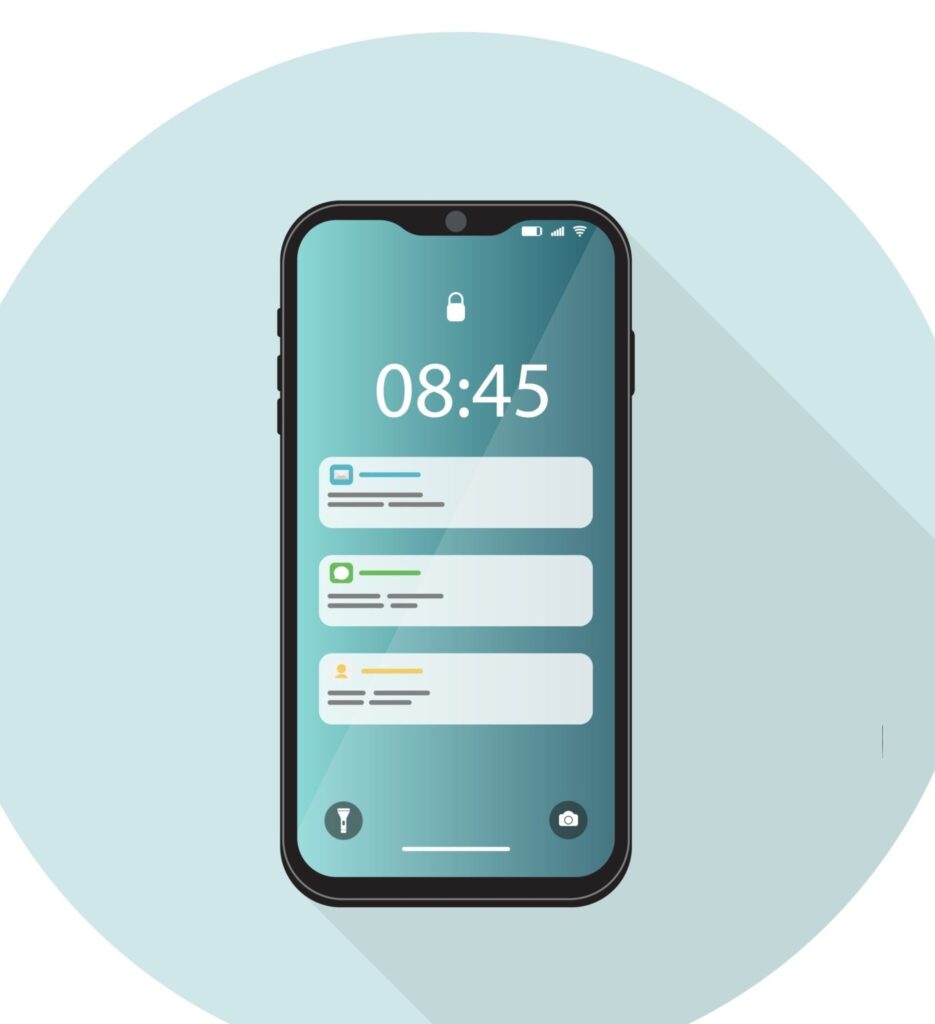In this modern time, rooting Android phones is really important because we rely on our smartphones for everything from talking to friends to playing games and doing work.
But sometimes, the way our phones come from the store isn’t exactly what we want. Fortunately, rooting Android gives us a way to change that and make our phones just the way we want them.
Easy Ways to Change and Personalize Your Phone By Rooting Android

Rooting Android means getting special access to the core of your phone’s operating system. With this access, you can do things that you couldn’t do on a norm. Let’s go through some simple ways you can change and personalize your phone by rooting Android.
- Using Different Phone Software: When you root your Android phone, you can install different kinds of software that change how your phone looks and works. This software is called “custom ROMs.” These custom ROMs can make your phone look really cool and do things it couldn’t do before.
- Changing How Your Phone Looks: After you root your phone, you can use apps to change how it looks. These apps let you change things like the colors on your phone’s screen, the way the buttons work, and even how the words look when you type.
- Making Your Phone Faster: Sometimes, phones can be slow. But when you root your Android phone, you can make it faster by changing something called the “kernel.” The kernel is like the engine that makes your phone run. With root access, you can tweak the kernel to make your phone run faster and last longer on a single charge.
- Getting Rid of Annoying Stuff: Have you ever had apps on your phone that you never use? Well, when you root your Android phone, you can get rid of them for good. This is called “removing bloatware.” It frees up space on your phone and makes it run smoother.
- Blocking Ads: Nobody likes ads popping up on their phone all the time. But when you root your Android phone, you can block those annoying ads with special apps. These apps make it so ads don’t show up when you’re using your phone.
So, as you can see, rooting Android can be a really cool thing to do if you want to customize your phone. But before you do it, make sure to do some research and understand what you’re getting into.
Rooting your phone can void its warranty and sometimes cause problems if you don’t do it right. But if you’re willing to take the risk, rooting Android can open up a whole new world of possibilities for making your phone truly yours.
See Also: 10 Overlooked Android Notification Settings: How To Enable Android Notification History
Risks of Customizing Your Phone by Rooting Android

Many people like to customize their Android phones to make them unique and better suit their needs. One way to do this is by “rooting Android,” which means getting special access to the core of the phone’s operating system.
While this can be exciting, it also comes with risks that users need to be aware of. In this article, we’ll explain the potential risks of rooting Android phones and how users can avoid problems.
1. Voiding Warranty
When you root your Android phone, you’re making changes to the software that the manufacturer didn’t intend. This can void the warranty, which means the company might not fix your phone for free if something goes wrong.
Most phone companies say this in their warranty agreements. So, if your rooted phone has a problem, you might have to pay to get it fixed.
It’s important to understand this risk before deciding to root your phone. While rooting can give you more control over your device, it also means taking responsibility for any issues that might come up.
Make sure to read the warranty agreement carefully before you root your phone, and think about whether it’s worth it.
2.Bricking Your Phone
Another risk of rooting Android phones is “bricking.” This happens when something goes wrong during the rooting process, and your phone becomes unusable.
There are two types of bricking: “soft brick,” where you can still fix the phone with the right tools, and “hard brick,” where the phone is permanently damaged.
To avoid bricking your phone, it’s important to follow the rooting instructions carefully and use reliable tools. Make sure you understand what you’re doing before you start, and back up your data just in case.
It’s also a good idea to use a custom recovery tool like TWRP, which can help you fix soft bricks and recover your phone if something goes wrong.
3. Security Vulnerabilities
Rooting Android phones can also make them more vulnerable to security threats. When you root your phone, you’re bypassing some of the security measures that the manufacturer put in place to protect your device.
This means that your phone might be more at risk of malware, viruses, and other security issues, especially if you install apps from unknown sources.
To protect your phone from security threats, it’s essential to be careful about what apps you install and where you get them from. Stick to trusted sources for rooting tools and apps, and avoid downloading anything from websites you don’t know.
It’s also a good idea to use antivirus software to scan for potential threats and keep your phone safe.
4. Potential Hardware Damage
Rooting Android phones can also damage the hardware. Making changes to the software can put extra strain on the phone’s hardware components, like the CPU and battery.
This can cause problems like overheating, battery drain, and even physical damage to the phone.
To avoid damaging your phone’s hardware, it’s important to be cautious when making changes to the software. Make sure you know what you’re doing before you start, and only make changes that you understand.
It’s also a good idea to monitor your phone’s temperature and performance after rooting to make sure everything is working correctly.
Rooting Android phones can be a great way to customize your device and make it more unique. However, it’s essential to be aware of the risks involved and take precautions to avoid problems.
Voiding the warranty, bricking your phone, exposing it to security threats, and potential hardware damage are all risks that users should consider before rooting their devices.
By understanding these risks and following best practices, users can enjoy the benefits of rooting Android phones safely and responsibly.
See Also: 12 Steps To Solve Bad Battery Issues On iPhone
Boosting Android Performance and Battery Life

- When it comes to smartphones, Android devices are popular for their versatility and usefulness. But sometimes, they can be slow or run out of battery quickly. Luckily, there’s a solution: rooting Android devices.
What Is Rooting Android?
Rooting Android means getting special control over the operating system. With this control, users can change system settings, delete apps that came with the device, and install custom software.
Rooting gives users more power over their devices, which can help improve performance and save battery life.
Making Android Faster
One reason people root their Android devices is to make them faster. Sometimes, devices come with apps that aren’t needed, called bloatware.
These apps take up space and make the device slower. By rooting, users can remove bloatware and free up space, which makes the device run smoother and apps open faster.
Rooting also lets users overclock their devices. This means making the device’s processor work faster than it was designed to.
Overclocking can make games and other apps run smoother, but it can also make the device get hot and use more battery.
Saving Battery Life
Rooting Android devices can also help save battery life. Background processes and services can drain the battery, even when they’re not needed. With root access, users can use special apps to stop these processes and save battery power.
Custom kernels are another way to save battery life. Kernels are like the brain of the operating system, and custom ones can be optimized to use less power. They can do things like making the processor use less energy without making the device slower.
Dealing With Risks
While rooting Android devices has many benefits, there are also risks involved. Rooting can void the device’s warranty and make it less secure.
Malicious apps or hackers might take advantage of the extra control root access provides. There’s also a chance of “bricking” the device, which means it becomes unusable.
Rooting Android devices can make them faster and last longer on a single charge. By removing unnecessary apps and optimizing settings, users can get more out of their devices.
However, it’s important to be careful and understand the risks involved. With the right precautions, rooting can be a great way to improve the Android experience.
See Also: How To Stop Android From Hanging Using These 4 Effective Methods
Risks of Viruses and Other Harmful Software

In a situation where everyone is using phones and computers, there’s a big problem: viruses and other bad programs.
These harmful programs can cause a lot of trouble, like stealing your information or making your device stop working.
It’s important to understand how they can hurt you so you can protect yourself and your devices.
Bad Programs on the Internet
There are a lot of different bad programs on the internet that can hurt your computer or phone. Some of them are viruses, worms, trojans, and ransomware.
They can get into your device in different ways, like when you click on a bad link in an email or download something from a website that’s not safe.
How it Affects Android Devices
Android phones are especially at risk because they’re popular and anyone can make apps for them.
When you root your Android device, you’re giving it more power, but you’re also making it easier for bad programs to get in.
So, while rooting can be helpful, it can also make your device more vulnerable to attacks.
Your Private Information
One big danger of viruses and other bad programs is that they can steal your private information.
This includes things like your passwords, credit card numbers, and even your identity. If someone gets this information, they can use it to like steal your money or pretend to be you online.
Losing Money and Getting Stolen
Viruses can also make you lose money. For example, ransomware can lock up your files and make you pay to get them back.
There are also trojans that can steal your banking information and use it to take money from your account without you knowing.
Causing Big Problems
Sometimes, viruses can cause big problems for more than just one person. For example, if a hospital’s computer system gets infected, it could cause chaos and put patients’ lives at risk.
That’s why it’s important to protect against these kinds of attacks and keep our important systems safe.
How to Stay Safe
There are things you can do to protect yourself from viruses and other bad programs. First, make sure to keep your software and apps up to date.
This will help fix any security holes that hackers might use to get into your device. You should also use antivirus software to scan for and remove any viruses that might already be on your device.
Being Careful Online
Another important thing is to be careful about what you do online. Don’t click on links or download files from websites you don’t trust.
Also, be careful about what information you share online, especially on social media. You never know who might be watching.
Using Strong Security
Using strong security measures can also help protect you from viruses and other bad programs. Things like using strong passwords, turning on two-factor authentication, and encrypting your data can make it harder for hackers to get into your accounts and steal your information.
Backing Up Your Data
Finally, it’s a good idea to regularly back up your data. This means making copies of your important files and storing them somewhere safe, like on an external hard drive or in the cloud.
That way, if something does happen to your device, you won’t lose all your important information.
Viruses and other bad programs are a big problem that can cause a lot of trouble for people and businesses.
By understanding how they work and taking steps to protect ourselves, we can stay safe online and keep our devices and information secure.
Remember to be careful about what you do online, use strong security measures, and regularly back up your data.
If you’re thinking about rooting your Android device, make sure to weigh the benefits against the risks and take precautions to keep it safe from attacks.
Conclusion
In summary, viruses and harmful software pose serious threats to our digital lives. Whether it’s slowing down our devices, stealing our personal information, or causing financial losses, these dangers are real and can affect anyone.
It’s important to stay vigilant and take steps to protect ourselves, such as keeping our software updated, using strong passwords, and being careful about what we do online.
Additionally, while rooting Android devices can offer benefits, it’s essential to understand the risks involved and take precautions to avoid exposing our devices to potential attacks.
By staying informed and proactive, we can minimize the risks and enjoy safer and more secure digital experiences. Remember, safety first!
See Also: Android App Development: 10 Steps To Create a User Friendly Android App
We Hope you’ve learned a lot from this article!! We’re glad you did. Join our telegram community to learn free tech skills, get up-to-date tech news, educational tech materials, free fintech online classes, that will help you grow and become profitable



